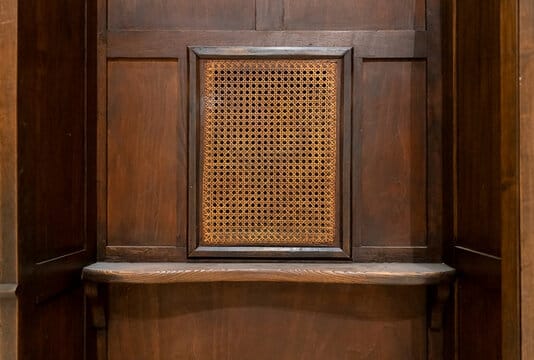The Sacrifice of the Sacrifice

Toolbox Tuesday: Voluntary Penance, Prudence, and Parenthood
Modern life overflows with comforts—air conditioning, self-driving cars, Smart Homes. We’ve poured endless resources into building a world that cushions us from difficulty.
But this aversion to discomfort hasn’t stopped at our bodies; it’s crept into our souls—and into our churches.
I witnessed this firsthand in the Evangelical communities I once belonged to. Theology and denominationalism are partly to blame; many Christians fear being perceived as borrowing practices from Catholicism, including fasting. Yet even a cursory overview of Christian spirituality presents us with the undeniable fact that many heroes of the Faith, Catholic or otherwise, followed Christ’s example and words—they denied themselves and carried their crosses.
Fasting, penance, and mortification are often misunderstood and, sometimes, misapplied. Some people wonder why we should seek out voluntary suffering when the world and life frequently provide ample servings without our consent. While we all should strive to join those trials to the Cross, finding small ways to deny our will or baser natures is an integral part of our journey with the Suffering Savior.
Let’s examine some examples, along with a few key points to keep in mind to ensure our sacrifices are prudent.
I reserve Wednesdays and Fridays for extra acts of penance. These include fasting from meat entirely, as well as eating less than I usually would on other days.
I loathe being barefoot; I dislike having cold or dirty feet, so on Wednesdays and Fridays, I commit to going barefoot at home and wearing sandals everywhere else. I wear boots while at work as a matter of prudence and safety, but I bring sandals with me to change into when I punch out.
Most days of the week (usually five), my alarm goes off at 4:30 AM. This is how I get my hour of quiet mental prayer in—which is not penance itself, but waking up extra early certainly is.
I recently volunteered for a Thursday night Holy Hour, which, like my morning prayer, is not necessarily penitential. Still, it does reduce the amount of time I sleep and involves a half-hour of travel each way.
These are my practices that work for me in the season of life I am in. I am also raising six kids with my wife, who is on call most of the year as a homebirth midwife. Kids always need or want something. There are disputes to de-escalate and settle, messes to clean up, baths to give—the list is endless.
While this is all part of parenting, I try to place these acts of service and love before my needs and offer them up in the way St. Thérèse did.
My wife’s job can be demanding; she can be gone for days at a time, at back-to-back births. And while I have the best in-laws anyone could ask for, who often pitch in to help, it can still be demanding after working a full day in the boiler room to come home and fix dinner, bathe kids, and get laundry going solo.
I am grateful to God that my wife is doing what He has called her to do, and the world is a better place because of her sacrifice and work. However, I still offer these moments to Him all the same.
We all have crosses to bear. Some remain with us our entire lives, while others are seasonal. I never intended to become a boiler operator, and though my job can be interesting and challenging, I have struggled to accept it. In many ways, my mismatched career has been a kind of wilderness—a miniature version of Exodus.
There is a suffering born of being misaligned with the work that pays your bills and feeds your family, and many people experience this.
In his excellent book To Know Christ Jesus, Frank Sheed meditates on the solitary experience and interior life of Christ. He suggests that no person could feel or experience the depth of profound loneliness that Christ did while living among us—and that reality has helped me anchor my suffering to my Savior’s.
I may feel alone, misunderstood, and out of place in my field, but Jesus knows how that feels. And offering my frustrations to Him transforms my experience into something sacred.
There are many options to make your life uncomfortable.
Skipping dessert or alcohol during the week.
Taking cold showers (I prefer lukewarm because lukewarm water irritates me far more than cold water).
Avoiding gossip or needless chatter.
Wearing uncomfortable or more modest clothing.
The list is endless.
However, it can be easy—or tempting—to take on too many of these practices, or adhere to them too severely. Padre Pio was said to have eaten a single four-ounce meal per day. But if you’re like me and have a physical job, a bunch of kids to raise, and a house to keep up with, four ounces a day isn’t prudent.
Scripture warns us several times against turning piety into a spectacle. And I have found that the most powerful penitential practices are often hidden and private.
There are times when I break from my practice if doing so serves a greater virtue or avoids harm. For example: if my host is serving only meat on a Friday for a special occasion, refusing their food would be refusing their hospitality—and that is not in the spirit of the Gospels.
It would be uncharitable to place my paltry penance above my host’s graciousness, so I offer the missed penance itself as a sacrifice—the sacrifice of the sacrifice.
The Lord knows our hearts, and He does not desire performances. As Mother Teresa said, “Do small things with great love.” That is the attitude we must adopt to be sure our piety does not become performative or disordered.
Our busy lives—full of trials, setbacks, and failures as they can be—can lead us to yearn for a life more structured or focused on piety and the interior life. We can fall into the trap of thinking that if we only had a better place to pray, more time for spiritual reading, could attend daily Mass, or visit Jesus in the Blessed Sacrament daily, we would be significantly holier than we are in our present circumstances.
But God gives each of us our vocation and our lives—the good along with the bad—for our sanctification and to demonstrate His glory.
If you are a parent feeling like you are permanently treading water in the deep end, you are precisely where the Lord wants you to be. Not mired in hardship or strife, but in the perfect position to lean entirely on Him and His grace, which, as St. Paul tells us, is sufficient.
Whether it's a job you hate, playing chauffeur to kids who express their wants more than their gratitude, a flat tire, or a private hour of prayer on hardwood floors, trust that your trials can be triumphs in Heaven, if you will only join them to the ultimate instrument of redemption, the Cross.
Embrace suffering, for it will find you and catch you up in its thorny embrace all the same.
This post concludes the series that began with the Glory in Work Boots post. While each entry can stand on its own merits, they should be viewed in their entirety as a system to guide you toward greater sanctity.
I have written about what I know and do and, where necessary, provided examples from practicing Catholics I know.
I pray that these Toolbox Tuesday posts have provided you with practical tips and advice to live holier lives as authentic disciples of Our Lord, and I look forward to writing more for you.




Member discussion